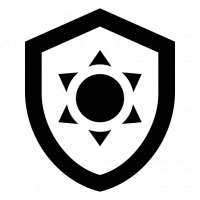| >> |
№1445
17497064962290.png
(11Кб, 512x512)
Показана уменьшенная копия, оригинал по клику.

— Of seeing world as it is. [Ueber Wahrheit und Lüge im aussermoralischen Sinne.] —
"Error" = Nothingness.
"Qualia" = Appearance.
"Truth" = Being/Dasein. [Every man, animal, or a construct, or anything "in itself", — is a "solitary sailor" (in itself; speaking metaphorically). Meaning the "herd instinct" is also a recipe for being swayed into error, into mistaken opinion. (Senses, as they are thoughts, too, and vice versa, are the first and foremost source of "what is", i.e. of our own being. From which follows that a "construct" that is called "society" is a sum of different parts of Being, in "themselves".)] (NB: conviction is the worst enemy of a truth, or the truth. Convictions can be true but nevertheless leading into nothing, i.e. a mistaken truth-sentences regarding to so-called "context", or to the orientation in the "sea", in the "ocean", i.e. in the Being. Also... considering the fact that Being includes Nothing in it's "Self" (or self), it is easy to surmise that the "non-Being" is Nothing, and it is entirely logical that the non-Being is also a part of the Being (literally belonging to Being as a negation of Being and non-extractable from the linguistic structure of the definition [of "non-Being"] itself), as far as it takes all that is, including nothingness in it's "self"...)
"Power" = adaptability, changeability ("Proteus-Natur", e.g. Borgia, "tropische Mensch"), becoming, "non-monotonotheism" (as "monotonotheism" pertains to philosophy being a slave of words and symbols, while thoughts and feelings have exactly that "protean" nature all-too-ready to be put in use, immediately). ["Adaptable" as not only reactive, or passive, but as an actively "reactive", e.g. "proactive", which means the act, the deed, always comes first, even in a so-called "reaction", the latter, again, being linguistically un-extractable "in itself" without it's "counterpart" (action, or an act). All of this — with regards and oriented as per the Being. Changeability, in this sense, without the loss of ability ("virtu", "moraline-free", i.e. power) to act, is what defines the human "in itself", i.e. the homo natura. (An example: a buddhist, an arhat, always changes and goes with the so-called flow of "what is" (tathāgata), but this changing which is so-called "non-doing", "wu-wei", is in itself impossible without an act, the "non-doing" is already a doing in "itself" (in a word, not a being). Thus, the act always precedes the so-called metaphorical "swimming" or "immersing" oneself, as it is impossible without being active and proactive: "der erlösende Mensch der grossen Liebe und Verachtung, der schöpferische Geist, den seine drängende Kraft aus allem Abseits und Jenseits immer wieder wegtreibt, dessen Einsamkeit vom Volke missverstanden wird, wie als ob sie eine Flucht vor der Wirklichkeit sei" (which once again proves the difference between a figure like this, and a so-called "solitary sailor" as per original meaning, i.e. a saint).)]
"God" = a command ("Gott ist eine faustgrobe Antwort, eine Undelicatesse gegen uns Denker —, im Grunde sogar bloss ein faustgrobes Verbot an uns: ihr sollt nicht denken!…"). [As something that contains "the Law", it is a total structure of all that has a conditioning power to altercate reality into only thing that conforms with "the Law", not the other way around. From what it does follow that a people is always and can't be nothing other than an extension of their own god, i.e. of their own being, of laws of their conservation as a type or a "species" (speaking metaphorically), of society and so on, but a god doesn't always pertain to be truthful in terms of being oriented by the Being, as it can easily be oriented by the non-Being, by Nothing. From what it does again follow that a man has to be an extension of the Being itself first (a "Mitternacht-Leier", "die Mitternacht-Seele"), and an extension of a God - only after (if even, for he doesn't have to be so by the necessity of what is; it is also easy to see that a priest is the one who usurps the right to speak to and fro Being, a right to "holy lie", of things in which a human can't decide what is truth and what is not a truth (but then, a priest did decide that already... doesn't that contradict the priest's statement? obviously, it does, logically, and then?.. what follows from this?), i.e. the knowledge, the philosophy and so on, — to reclaim this right is to be truthful qua Being and to ensure the capacity for own survivability, own power, mastery not "over Being", but as mastery "with Being", "as Being", which in "itself", at first, a freedom to speak, and then, a freedom to act (as the "instinct of freedom" is just an expression of the will to power; psychoanalysis (and, possibly, a self-analysis?) being a perfect expression of absolute freedom to speak, freely associate ("free association principle" as "radical psychoanalysis") as one sees fit without any restriction or distraction, i.e. the full expression of one own's Being)). (If we conflate "Being" and "God", this won't make any sensible meaning, as Being will lose the meaning of commandment, allowing free adaptability without any so-called "love" or "punishment", i.e. losing the property of a law, and simply becoming a description that doesn't do anything at all, doesn't act, just exists, as [God's] being, with the utmost stupidity ("das Eselsfest"). But the reader is free to do as they want....)]
"Life" = a process. [Static being (Sein) is excluded in favor of becoming (Dasein) as the entity of a first rank, and becomes an entity of a second rank.]
|